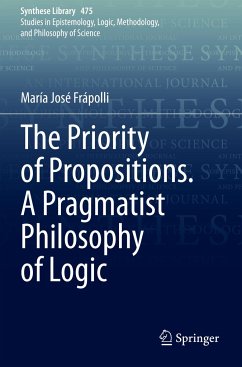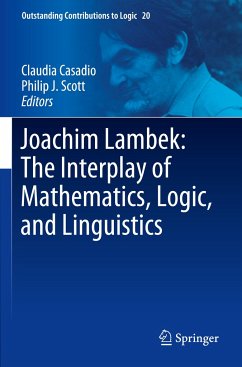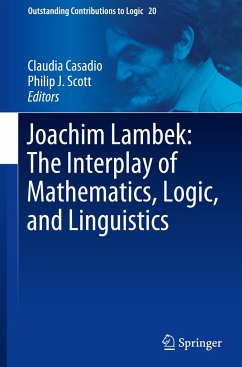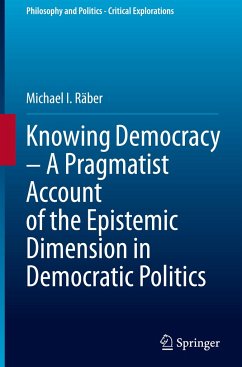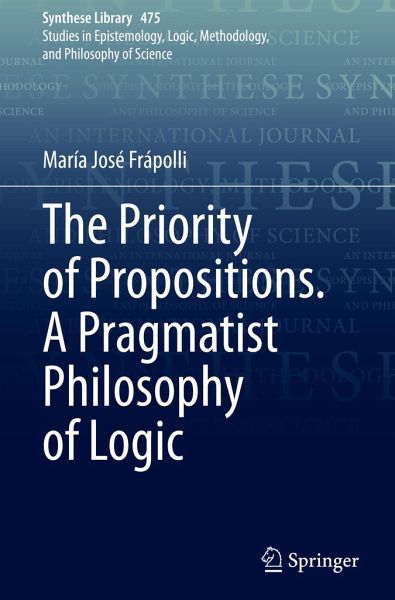
The Priority of Propositions. A Pragmatist Philosophy of Logic
Versandkostenfrei!
Versandfertig in 6-10 Tagen
91,99 €
inkl. MwSt.
Weitere Ausgaben:

PAYBACK Punkte
46 °P sammeln!
This monograph is a defence of the Fregean take on logic. The author argues that Frege´s projects, in logic and philosophy of language, are essentially connected and that the formalist shift produced by the work of Peano, Boole and Schroeder and continued by Hilbert and Tarski is completely alien to Frege's approach in the Begriffsschrift. A central thesis of the book is that judgeable contents, i.e. propositions, are the primary bearers of logical properties, which makes logic embedded in our conceptual system. This approach allows coherent and correct definitions of logical constants, logic...
This monograph is a defence of the Fregean take on logic. The author argues that Frege´s projects, in logic and philosophy of language, are essentially connected and that the formalist shift produced by the work of Peano, Boole and Schroeder and continued by Hilbert and Tarski is completely alien to Frege's approach in the Begriffsschrift. A central thesis of the book is that judgeable contents, i.e. propositions, are the primary bearers of logical properties, which makes logic embedded in our conceptual system. This approach allows coherent and correct definitions of logical constants, logical consequence, and truth and connects their use to the practices of rational agents in science and everyday life.



